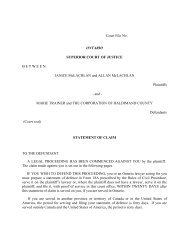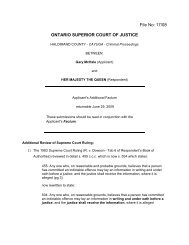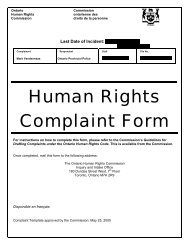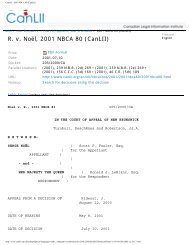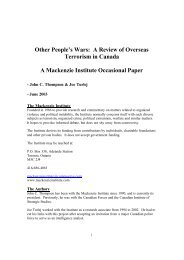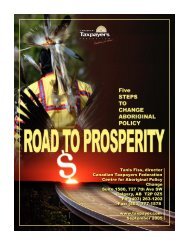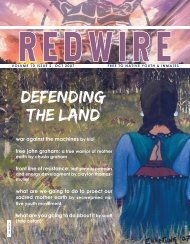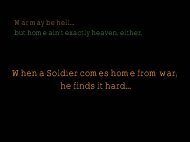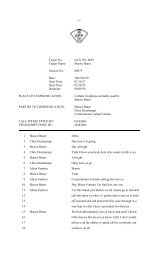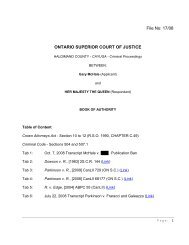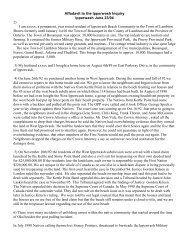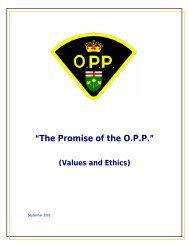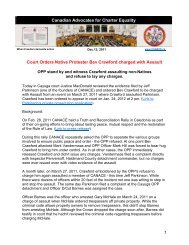Reasons for Decision - Caledonia Wake Up Call
Reasons for Decision - Caledonia Wake Up Call
Reasons for Decision - Caledonia Wake Up Call
Create successful ePaper yourself
Turn your PDF publications into a flip-book with our unique Google optimized e-Paper software.
Page 6THE LAW REGARDING INJUNCTIONS[33] The traditional test to be applied in considering whether an interlocutory injunction will begranted is the three-step test set out by the Supreme Court of Canada in the case of RJR-MacDonaldInc. v. Canada (Attorney General), [1994] 1 S.C.R. 311. The three criteria in this test can be set out byway of the following three questions:1. Is there a serious question to be tried?2. If the injunction is not granted will the plaintiff suffer irreparable harm?3. Which party will suffer the greater harm if the injunction is granted or refused? This iscalled the balance of convenience test.[34] Where there has been interference with property rights it has been held that the traditional testshould be modified so that the issue of whether there is a serious question to be tried will be stronglyemphasized, almost to the exclusion of the other two issues.[35] I reviewed the law in support of that proposition in an earlier case reported as City of Hamilton v.Loucks (2003), 232 D.L.R. (4th) 362, and I adopt my reasoning in that case <strong>for</strong> the purposes of thisdecision.[36] Also, in support of the modification of the traditional test I refer to an excerpt from Injunctionsand Specific Per<strong>for</strong>mance, Loose Leaf Edition, at paragraph 4.610 wherein the author of the book,Justice Robert Sharpe wrote:"Under our system of law, property rights are sacrosanct. For that reason, the rules thatgenerally apply to injunctions do not always apply in cases such as this. The balance ofconvenience and other matters may have to take second place to the sancrosanctity [sic] ofproperty rights in matters of trespass."[37] Justice Sharpe also wrote at paragraph 4.10 of his book:"Where property rights are concerned, it is almost that damages are presumed inadequateand an injunction to restrain continuation of the wrong is the usual remedy."SERIOUS ISSUE TO BE TRIED[38] Voortman's claim is quite simple. Voortman claims to be the owner of the property by way of achain of title going back to the Crown Patents. Voortman is entitled to rely on that chain of title.There<strong>for</strong>e Voortman has the right to exclude others from the property, and has the right to build on the



